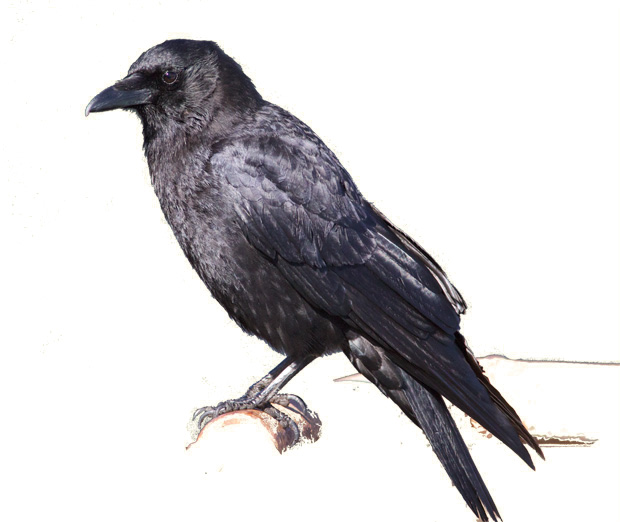Guest Poet
 On occasional Friday mornings I am able to meet with two other poets and spend an hour or two writing, and talking about writing. One of those poets is Darby Ringer. We first met in Nelson Bentley’s workshop a million years ago or so, and whenever I read her poem, “On Raven’s Wing,” I can hear Nelson say, “Send this out IMMEDIATELY to some lucky editor!”
On occasional Friday mornings I am able to meet with two other poets and spend an hour or two writing, and talking about writing. One of those poets is Darby Ringer. We first met in Nelson Bentley’s workshop a million years ago or so, and whenever I read her poem, “On Raven’s Wing,” I can hear Nelson say, “Send this out IMMEDIATELY to some lucky editor!”
The image, by the way, is borrowed from Loren Webster’s blog, In a Dark Time…the Eye Begins to See, which I began following for the reference to poet Theodore Roethke, and kept following for the birds.
On Raven’s Wing
He’s a half full gunny sack,
his eyes, black and burning.
He’s slow to wake,
sees raven’s wing in a dream,
follows its black shape,
the green line of its path.
He walks along the incoming tide,
squints into sun,
picks up a bone and throws it out to sea,
slicing the seaweed air.
With another bone, he carves a mask
to honor his Haida clan.
He returns to the beach,
carves and throws,
throws and carves
a thousand carving slices.
The tide curls over rocks,
takes his raven, his breath,
his life, a crescent of bone.
He plants himself on this spit of land.
And the tide keeps coming, taking.


 I have been singing the praises of
I have been singing the praises of 
